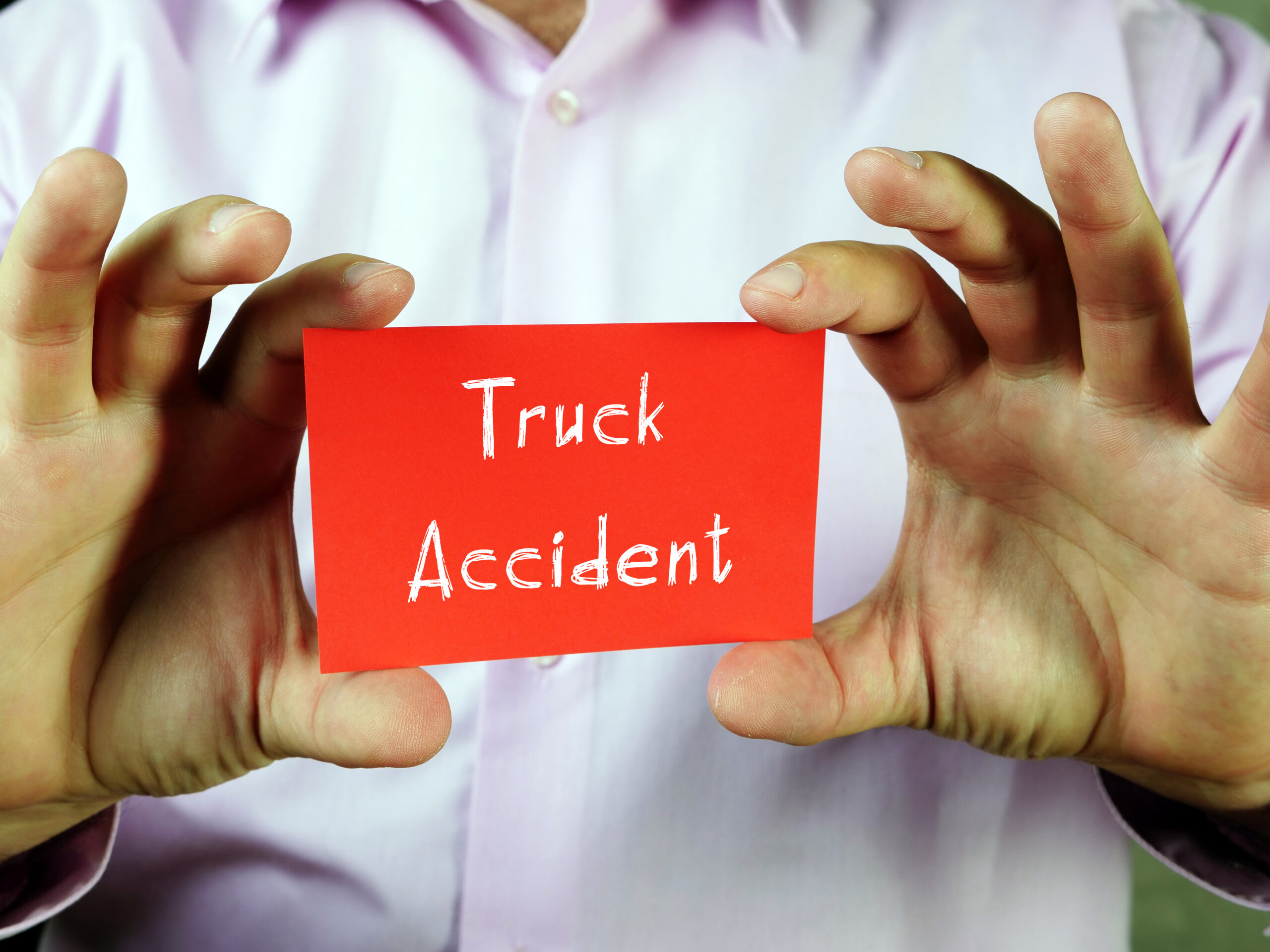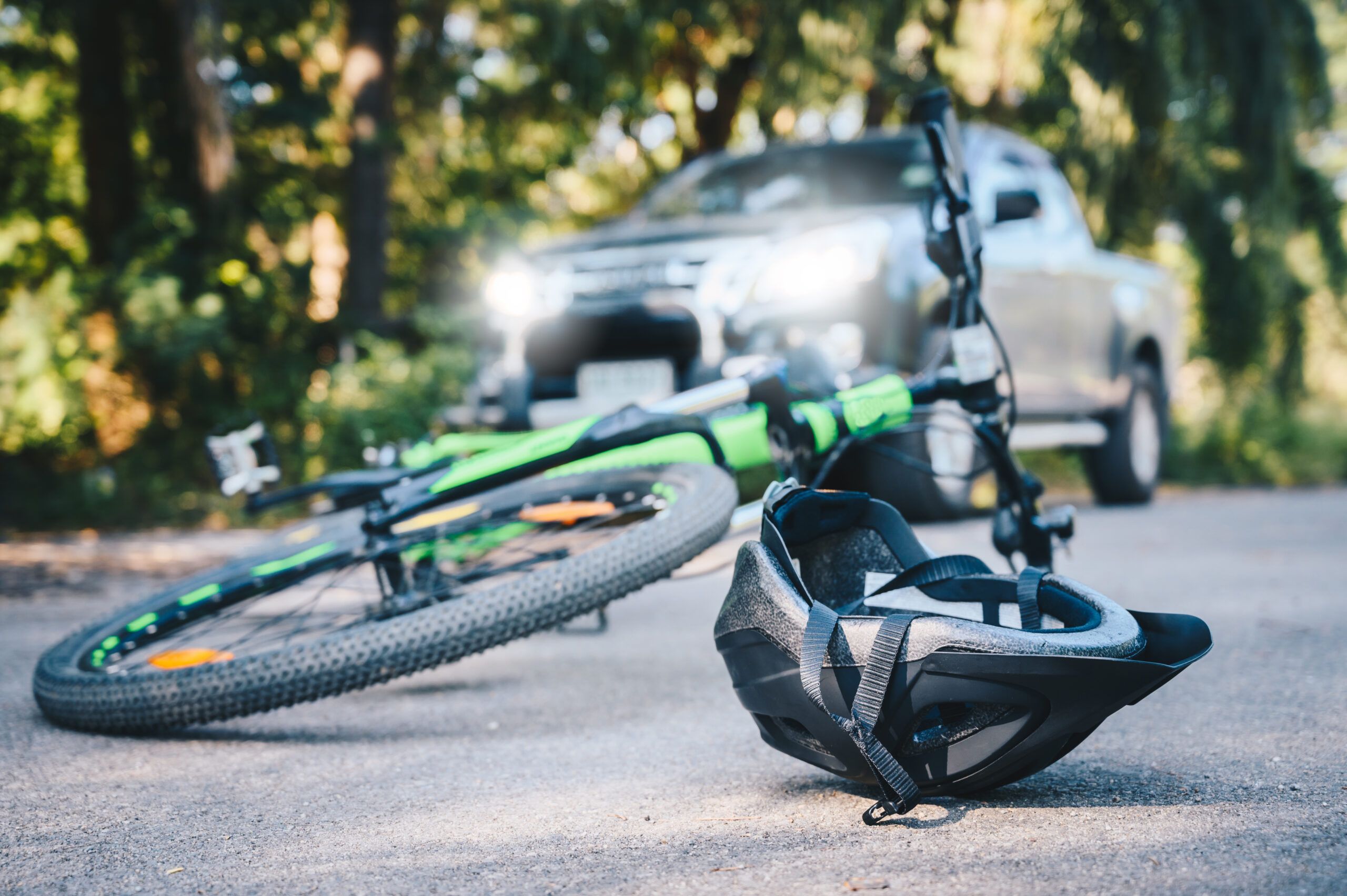How To File a Truck Accident Lawsuit?
Truck accidents leave victims with severe injuries, extensive medical bills, and lasting emotional distress. State and federal regulations govern these cases, and filing a lawsuit after such a crash involves a more complex process than filing a typical car accident claim. It is advisable to obtain the help of a Massachusetts truck accident lawyer to properly file a truck accident lawsuit and protect your legal interests.
If you or a loved one suffered an injury in a truck accident, the attorneys at Brooks Law Firm can guide you in taking the proper legal steps toward recovery. Call (617)245-8090 today for a free consultation to discuss your case and learn how to begin your claim.
Key Takeaways: Filling a Truck Accident Lawsuit
- Filing a truck accident lawsuit is a detailed legal process that involves multiple stages, from gathering documentation to identifying all potentially liable parties.
- Obtaining key documentation establishes the extent of your injuries, verifies the cause of the crash, and demonstrates the financial impact on your life.
- Strong evidence determines the success of your claim, as it can provide proof of negligence and strengthen your position in settlement or trial.
- When insurers refuse fair compensation, your lawyer can take the case to court and advocate for full recovery before a judge or jury.
- A truck accident attorney preserves all evidence, identifies all responsible parties, and follows all procedural rules to protect your right to maximum compensation.
What to Do Before Filing a Truck Accident Lawsuit
Before filing a truck accident lawsuit, you must take several key steps to build a strong foundation for your claim. These preliminary actions are crucial in gathering evidence, protecting your rights, and deciding whether to file a lawsuit or reach a fair settlement outside of court.

Obtain Necessary Documentation
Before moving forward with a truck accident lawsuit, gather all relevant documentation. The strength of your case relies heavily on the accuracy, completeness, and credibility of the records you present. These documents serve as tangible proof of how the crash occurred, the injuries sustained, and the financial losses suffered.
Medical documentation is among the most powerful evidence in a truck accident claim. It establishes the direct link between the collision and your physical injuries. Obtain copies of all hospital records, diagnostic imaging results, physician notes, prescriptions, and treatment plans. Keep a detailed record of medical bills, rehabilitation costs, and future care estimates. These records quantify your damages and demonstrate the severity and long-term impact.
The police report also provides an official, third-party account of the crash. It includes the responding officer’s observations, statements from both drivers, and any citations or violations issued. Insurers and courts rely on these details to assess liability and credibility. Ensure to obtain a copy of the report from the law enforcement agency investigating the accident.
If your injuries cause you to miss work, employment records and pay stubs are needed to calculate lost earnings. Tax returns or business financial statements can be sufficient proof of lost income for self-employed individuals. These documents help establish the financial impact the accident has had on your livelihood.
Gather and Preserve Evidence
Collect as much evidence as possible from the scene. This includes photographs of the vehicles, road conditions, skid marks, and visible injuries. Obtain contact details for witnesses and note the trucking company’s name and vehicle identification numbers. Preserving this evidence immediately helps prevent disputes later about how the crash occurred.
Notify Your Insurance Company
You must promptly report the collision to your insurer, even if you are not at fault. However, avoid providing detailed recorded statements or accepting early settlement offers without consulting an attorney. Insurance companies representing trucking companies train their staff to minimize payouts, and they can use anything you say to weaken your claim.
Consult a Truck Accident Lawyer
Truck accident cases involve multiple parties and may require an in-depth understanding of federal trucking laws. Your truck accident attorney can investigate these elements, identify all sources of liability, and manage communications with insurers. Early legal intervention also ensures critical evidence, like truck maintenance logs or electronic logging device (ELD) data, is preserved before it’s altered or destroyed.
Filing the Truck Accident Lawsuit: What Happens Next
Once you have gathered all necessary documentation, the next step is to formally file your truck accident lawsuit. This process requires completing a series of legal filings, following procedural steps, and meeting strict deadlines. Any delay or oversight can weaken your case or result in its dismissal. Here’s an overview of what happens after you officially file your lawsuit.
Drafting and Filing the Complaint
Your attorney begins by preparing a complaint and outlining your claims against the defendant(s). It details how the truck accident occurred, your injuries and losses, and the specific compensation you seek. The complaint must also identify each party you hold liable, such as the truck driver, the trucking company, or a vehicle manufacturer.
After drafting, you file the complaint with the court in the jurisdiction where the accident occurred. Filing officially initiates your lawsuit and starts the legal timeline for the defendant’s response.
Serving the Defendant
After filing, you must formally serve each defendant with the lawsuit. This means they receive an official notice and a copy of your complaint, allowing them to respond. The service of process ensures due process and is a key step that allows your case to proceed legitimately. Defendants generally have a limited window to file an answer, which may include defenses, counterclaims, or motions to dismiss the case.
Discovery Phase
Following the initial filings, both sides enter the discovery phase, which is a truck accident lawsuit’s most detailed and time-consuming stage. Discovery allows each party to exchange information, request documents, and take sworn statements from witnesses and professionals.
In trucking cases, this stage can reveal critical evidence such as:
- Driver qualification files showing the operator’s training and driving history.
- Electronic logging device (ELD) data detailing driving hours and rest periods.
- Truck maintenance and inspection records may expose negligence by the carrier.
- Company communication logs show pressure to meet unrealistic delivery deadlines.
These records can uncover patterns of unsafe practices beyond individual error, sometimes pointing to systemic negligence within the trucking company.
Settlement Negotiations
During or after discovery, both parties may attempt to settle before trial. Settlements are common in truck accident cases because they allow victims to recover compensation without the uncertainty and expense of court proceedings. Your lawyer will handle all negotiations and ensure that any proposed offer accurately reflects your damages, including current and future care needs.
Trial Preparation and Court Proceedings
Your attorney prepares your case for trial if you cannot reach a fair resolution. This phase involves refining witness testimony, finalizing exhibits, and developing persuasive arguments for the judge or jury. Both sides present their evidence at trial, and the court determines liability and compensation.
While most truck accident cases settle before reaching this stage, being ready for trial strengthens your position during negotiations. Insurers are more likely to take your case seriously when they know your attorney is fully prepared to present it in court.
Liable Parties in a Truck Accident Lawsuit
Identifying who is legally responsible for a truck accident is a key step when filing a lawsuit. Truck accidents usually involve multiple parties, and determining who caused or contributed to the crash directly affects who must pay compensation. Without a clear identification of the liable parties, you risk pursuing the wrong defendant, weakening your case, or leaving out sources of financial recovery.
Pinpointing responsibility also determines how insurance coverage applies and whether additional claims, such as those against a trucking company or parts manufacturer, can be added to increase your potential compensation. Attorneys at Brooks Law Firm will carefully examine driver logs, company records, and electronic data to uncover every liable party and build a solid foundation for your lawsuit.
Here are the potential liable parties:
The Truck Driver
The most obvious party to examine is the truck driver. Drivers may be liable if they were speeding, distracted, fatigued, or under the influence during the crash. Violations of state or federal trucking regulations also point directly to driver negligence. Evidence such as logbooks, electronic driving data, and dashcam footage can help establish fault.
The Trucking Company
The trucking company often shares or assumes a significant portion of the liability. Legally, employers can be held responsible for what their employees do when acting within the scope of their employment duties. They can still bear accountability if they fail to properly maintain vehicles or hire unqualified drivers. Examining corporate records and safety compliance documents is vital to uncovering these practices.
Cargo Loaders and Shippers
Improperly loaded or unbalanced cargo can make a truck unstable and lead to rollover or jackknife accidents. When that happens, the cargo loading company or shipper may be liable. FMCSA regulations mandate that drivers secure cargo properly and distribute it evenly. If investigators determine that improper loading contributed to the crash, you can include these third parties in the lawsuit.
Truck and Parts Manufacturers
Sometimes, the cause of a truck accident lies in a **defective vehicle part**, such as faulty brakes, worn tires, or a malfunctioning steering system. When mechanical failure stems from poor design or manufacturing defects, you can sue the vehicle or parts manufacturer under product liability laws. Professional testimony and technical inspection reports often play a key role in these claims.
Maintenance Contractors
Trucking companies frequently outsource vehicle maintenance to third-party contractors. While this practice is common in the industry, it doesn’t eliminate the company’s responsibility for ensuring its fleet is safe. They may also be liable if an independent maintenance contractor fails to inspect or repair the truck properly, especially if the company failed to oversee or audit the contractor’s work. Maintenance logs and repair invoices can reveal whether technicians skipped safety checks, delayed necessary repairs, or performed substandard work. These records often play a key role in uncovering patterns of negligence that may have contributed to an accident.
Contact a Truck Accident Lawyer For Support Through the Lawsuit Process
Filing a truck accident lawsuit requires building a strong legal foundation supported by compelling evidence. The Massachusetts personal injury attorneys at Brooks Law Firm have extensive experience handling complex truck accident claims and guiding victims through every stage of litigation.

If a truck accident has harmed you or a loved one, seek legal help immediately. Call (617)245-8090 today for a free consultation and learn how we can pursue the justice and compensation you deserve.
FAQs: Filing a Truck Accident Lawsuit
How much compensation can I recover from a truck accident lawsuit?
The amount of compensation depends on the severity of your injuries, your medical expenses, lost income, and the long-term impact of the accident on your life. You may recover damages for medical costs, emotional anguish, loss of the ability to work, and property damage, among others. Your lawyer will evaluate the crash’s impact on your life and push for a recovery reflecting your losses.
Do I need to prove negligence to win my case?
To successfully file a truck accident lawsuit, you must show that another party acted negligently. This can be a violation of traffic laws, a breach of safety regulations, or a failure to maintain the truck properly, and this negligence directly caused your injuries. Your lawyer will rely heavily on strong documentation and professional testimony to prove these elements.
Will my truck accident case end up in trial?
Many truck accident cases resolve before reaching trial. However, if the insurer refuses a fair offer, your attorney may recommend court proceedings. Taking your case to trial ensures a judge or jury fully hears it and decides liability and compensation based on the evidence. In this situation, your lawyer will prepare a compelling courtroom strategy, present professional testimony, and advocate forcefully on your behalf to secure the best possible outcome.
The trucking company denied responsibility. What can I do?
It’s common for trucking companies and their insurers to dispute fault or minimize your damages. An attorney can counter these tactics by presenting clear evidence of negligence, such as driver fatigue records, hours-of-service violations, or improper maintenance reports. Legal representation ensures the company’s defense strategies do not undermine your right to fair recovery.





